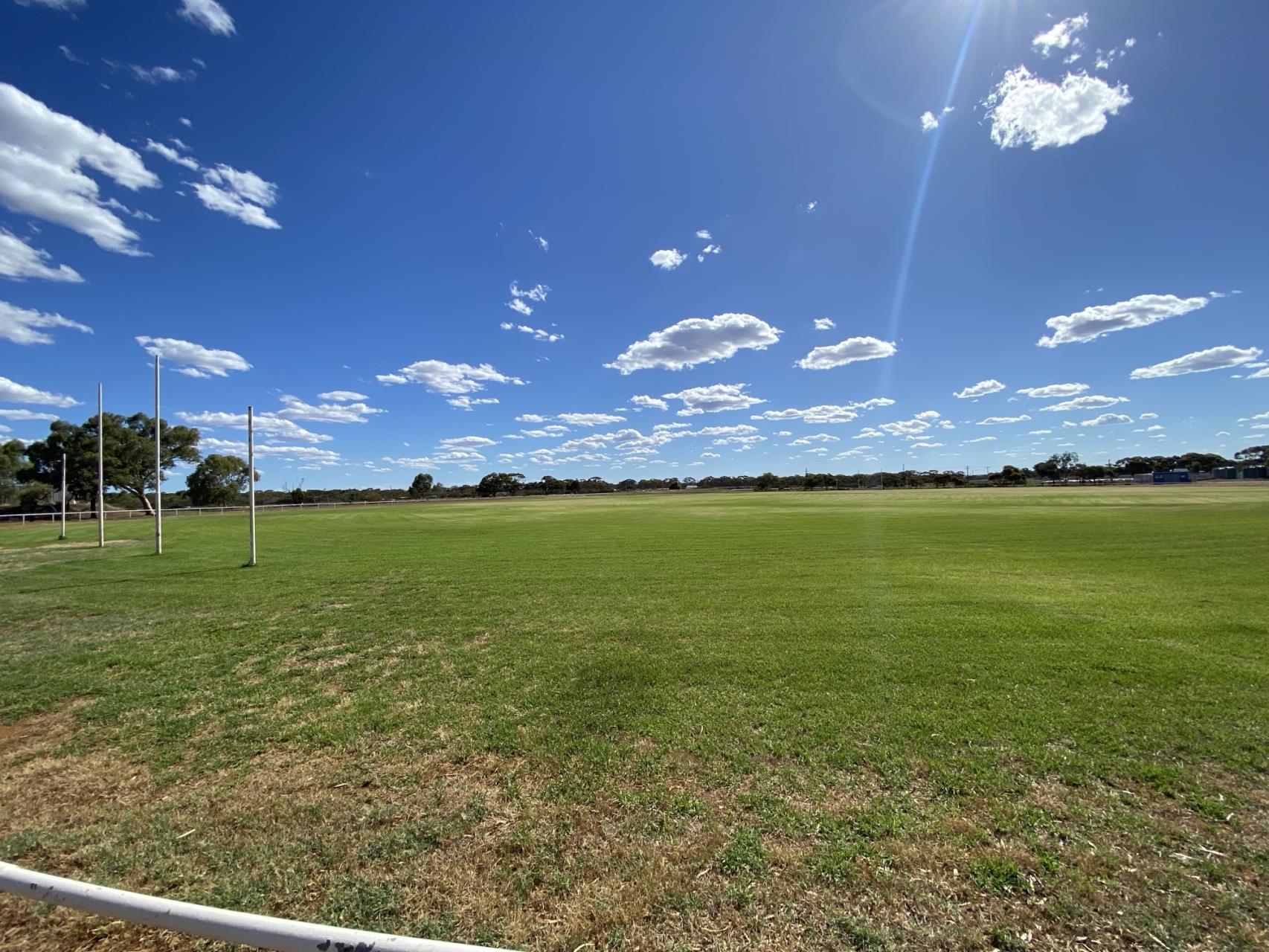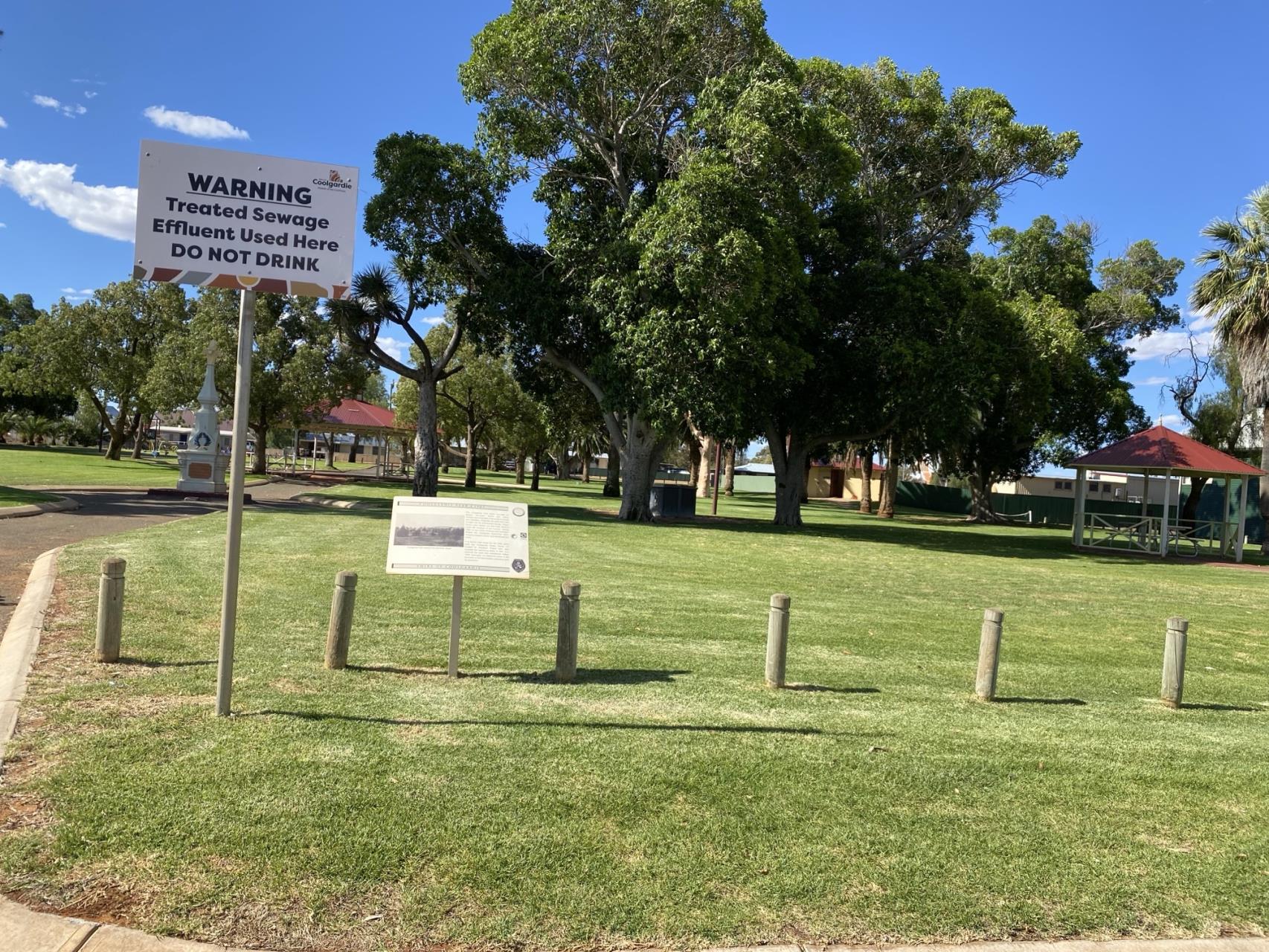How is our Wastewater treated?
The wastewater from the Shire of Coolgardie enters the Coolgardie’s wastewater treatment plant (WWTP) where the main objective is to remove or break down what people have added to the water leaving their homes, businesses and schools.
The Coolgardie’s WWTP treats wastewater through two stages, this includes:
Primary Treatment
Primary treatment removes the large solids entering the Coolgardie’s WWTP through screen traps.
Secondary Treatment
The wastewater flows into clarifiers which enable the removal of small particles from the water before it is chlorinated and distributed to Coolgardie’s park and oval.
 |
 |
| Coolgardie Oval |
Coolgardie Park |
Caring for our Environment!
We don't need to use drinking water to irrigate Shire of Coolgardie’s park and oval in Coolgardie.
Did you know?
When oil and grease hit the cool water in your wastewater pipes, they harden. They then combine with other waste like wet wipes to form a hard blockage known as a 'fatberg'.
These blockages can cause overflows which can be a health and environmental nightmare with wastewater backing up and overflowing into homes, backyards and local waterways.
What’s more, you could be looking at an expensive plumbing bill to fix a blocked drain!
This costs residents, industry and the Shire’s ability to water our greenspaces and oval with quality treated water.
The three main causes of blocked pipes and wastewater treatment problems are:
- Flushing wet wipes, condoms, cleaning cloths, fabrics and bathroom products down the toilet.
- Rinsing cooking fats and food scraps down the sink.
- Pouring down chemicals, like solvents and cleaning products into the sink, drain or toilet.
While some brands of wet wipes might say that they’re flushable - they’re actually not! That's why they make up to 75% of all blockages.
| Problem materials found in our wastewater |
Damage caused to the wastewater system and environment |
Prevention options |
|
Solid items
- Plastics
- Rubber
- Fibres
- Organic Material
|
- Block wastewater pipes causing overflows.
- Impacts on the efficient operation and cost of treatment.
- Items can pass into treated water deposits, reducing the quality of treated water.
|
- Never throw solid objects into the toilet.
- Use a bin for unwanted or used items disposable nappies, wet wipes, condoms, cotton-buds, tampons and cigarette butts.
|
|
|
- Block wastewater pipes.
- Increases chempical imbalances at the Coolgardie's Wastewater Treatment Plant leading to a low quality treatment process.
|
- Make sure all sinks have a sink strainer.
- Dispose of all oily products (foods scraps, excess cooking oil, unused milk) in sealed containers and place in general waste bin.
|
|
Paint and Paint related products
|
Contains contaminates that affect the treatment process leading to environmental impacts for surrounding aquatic life.
|
- Clean paint equipment in buckets instead of at drainage points. Empty buckets either in the garden or in sealed containers and dispose of in your household general waste bin.
- Dispose of unwanted paint and paint related products at the Waste Facilities (FREE of charge for residents).
|
|
Solvents and fuels
|
Toxic to bacteria used in wastewater treatment process. This can result in the water not being treated to a quality that is sufficient for the irrigation of the Shire of Coolgardie's park and oval.
|
- Never pour unused pesticides, chemicals or flea rinses down the drain.
- Dispose of leftover products at the Waste Facilities (FREE of charge for residents).
|
Think before you flush?
Download the Water Corporation’s handy poster to remind your family what not to flush!
Remember to never flush anything other than the three P’s – pee, poo and (toilet) paper down the toilet. Anything other than toilet paper should go in the bin.
No one wants to see our town without our green spaces or without working sewerage systems. It’s up to everyone to help avoid blockages in our wastewater system.